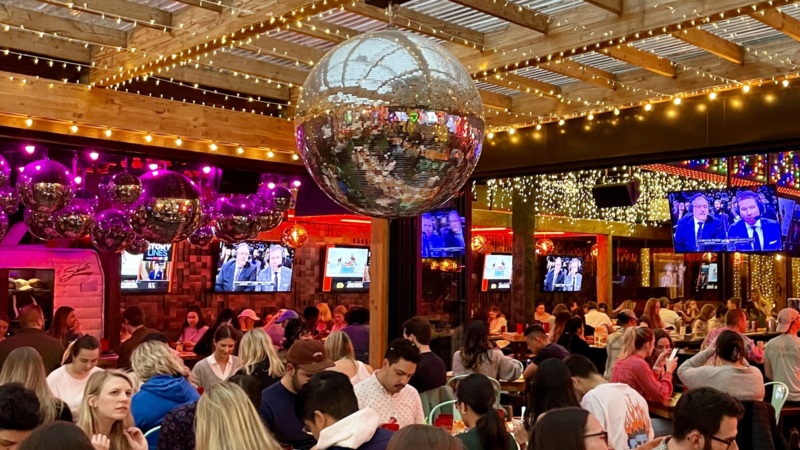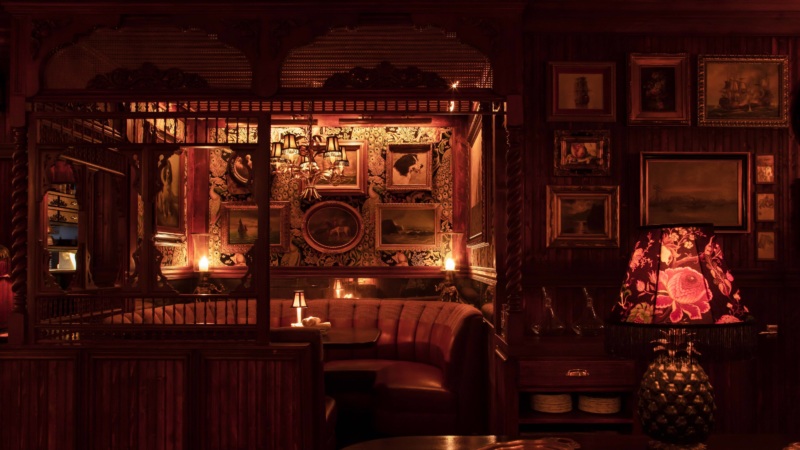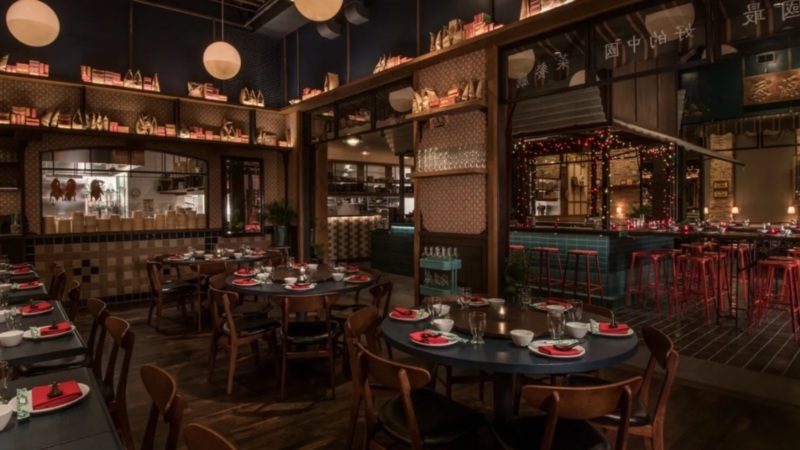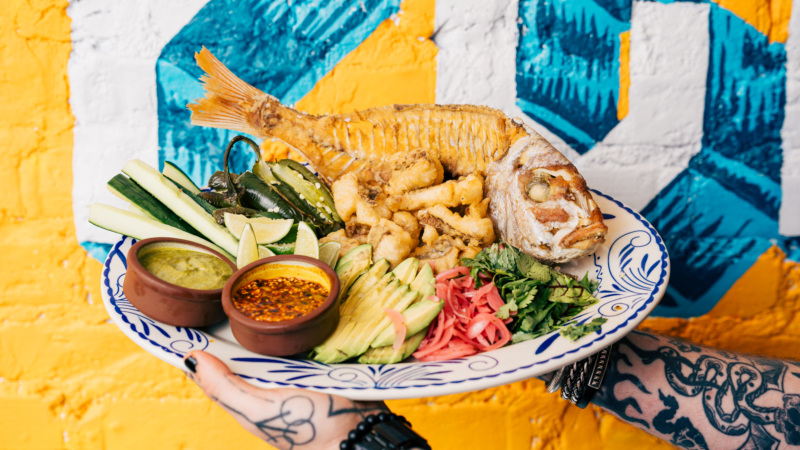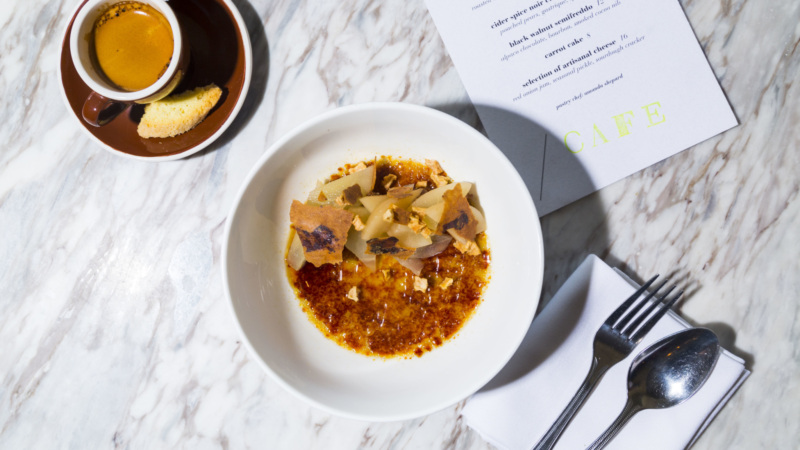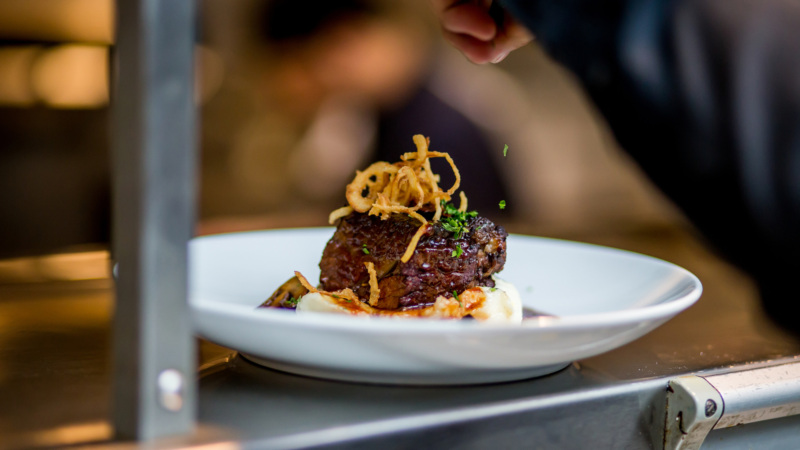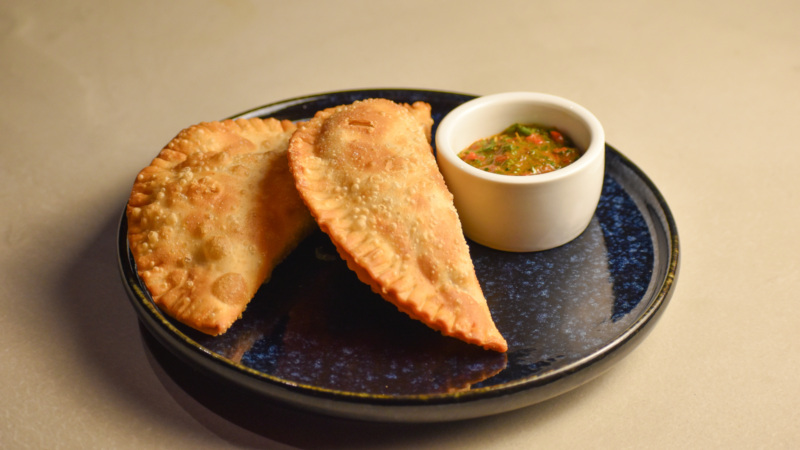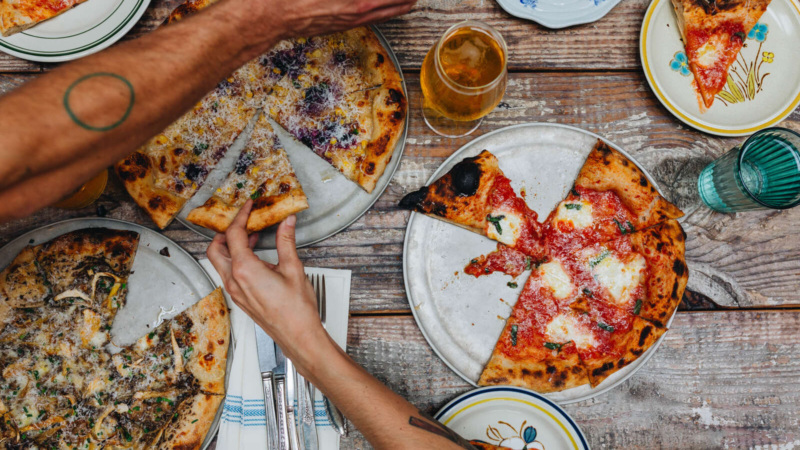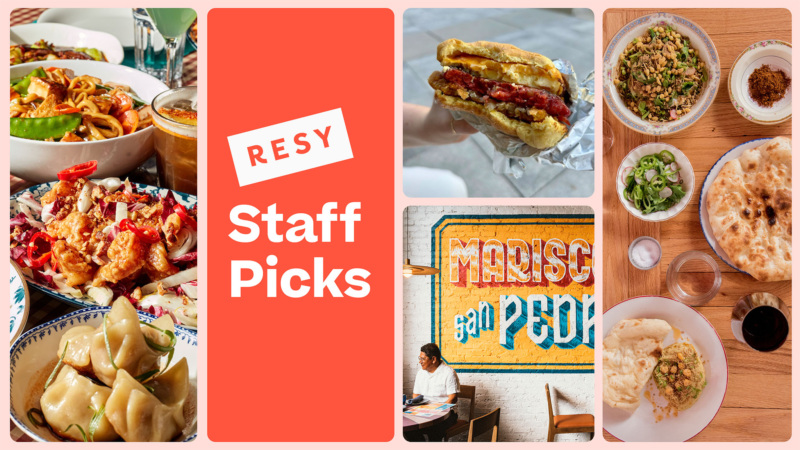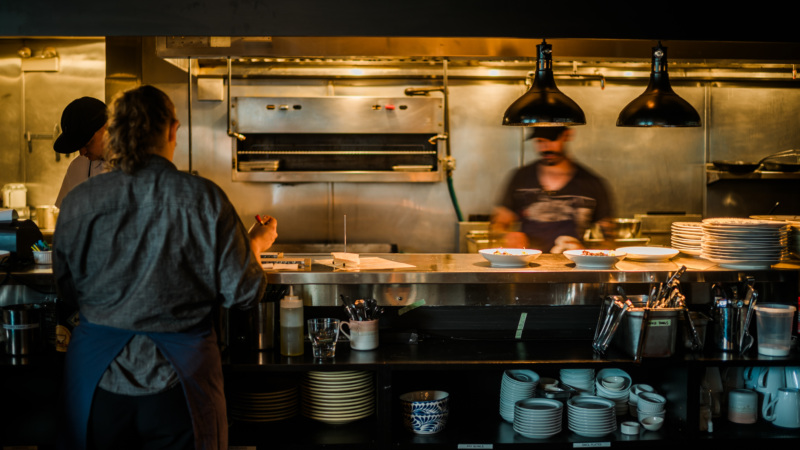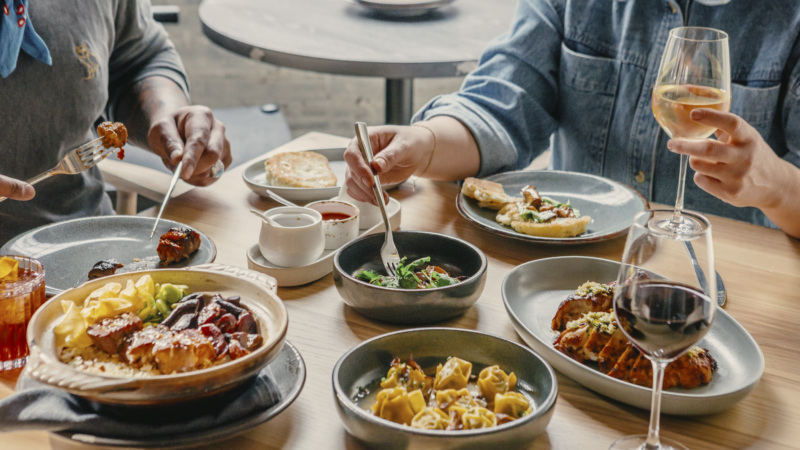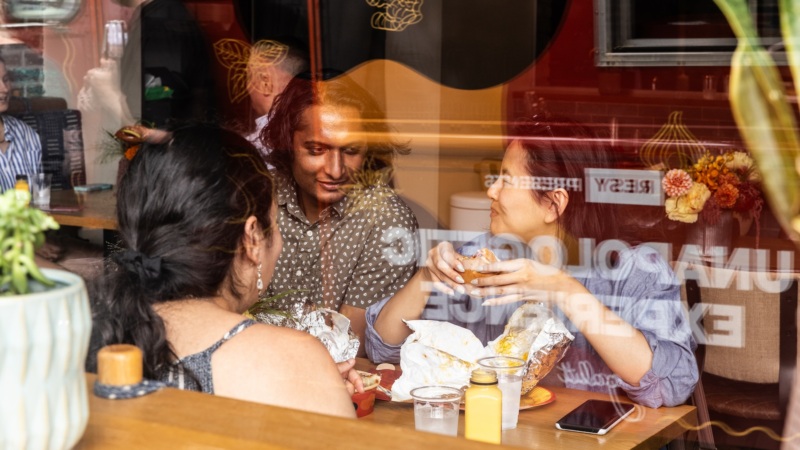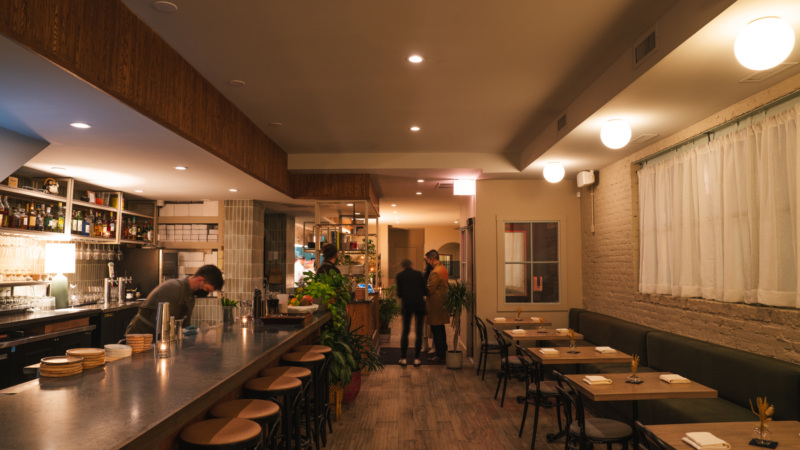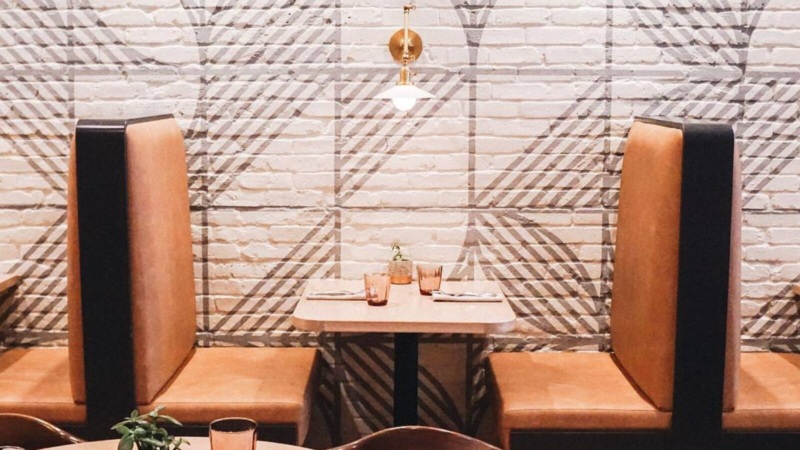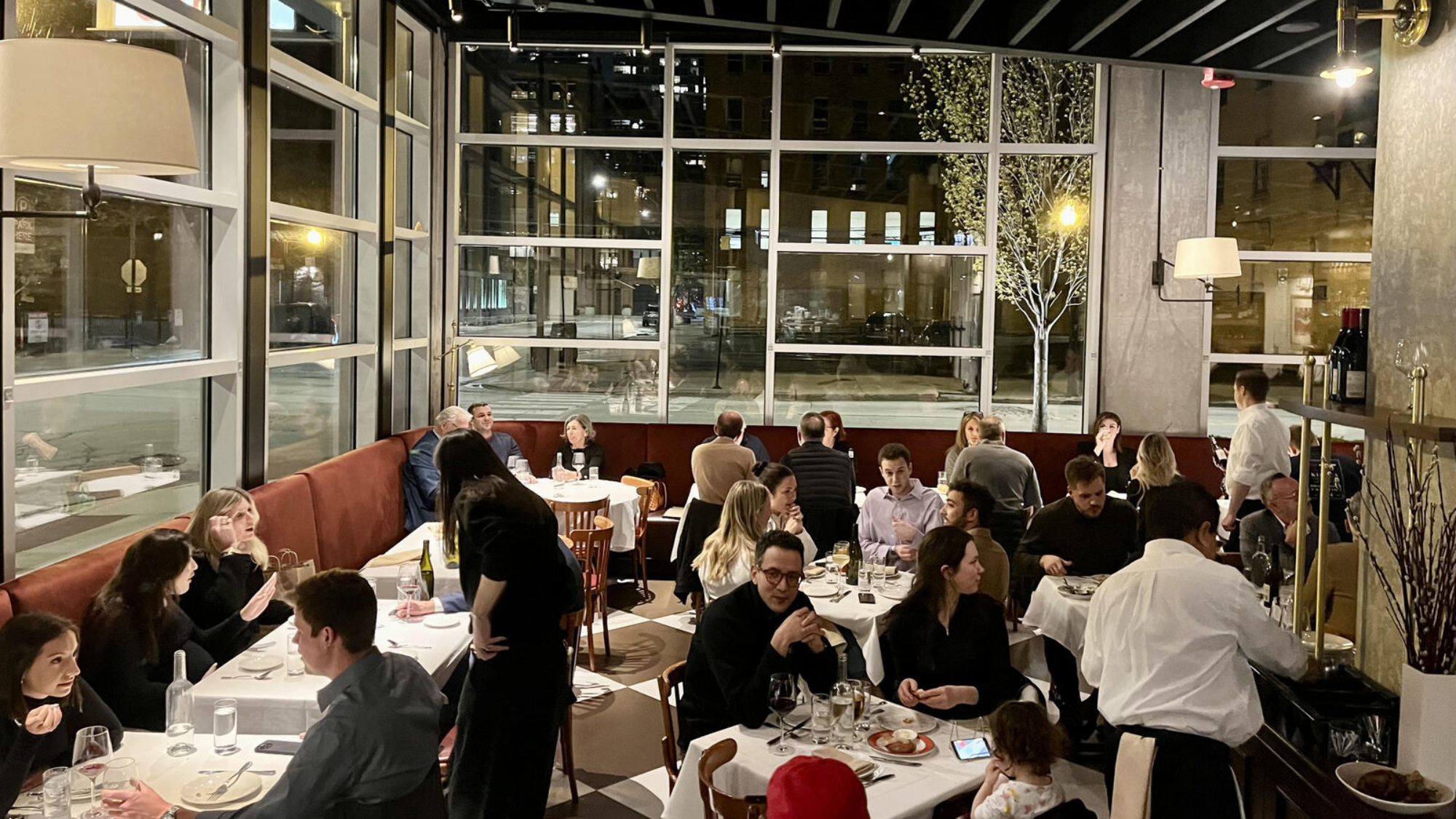
Everything You Need to Know About Obélix, Now Open in River North
Before you go to a restaurant, what do you want — or need — to know most? In our series The Rundown, we’re sharing all the essentials about newly opened (as well as some of your favorite) restaurants.
To say that Oliver and Nicolas Poilevey grew up in French restaurants is hardly an overstatement: Their parents, Jean-Claude and Susanne, ran two of Chicago’s most beloved Francophile haunts, Le Bouchon in Bucktown and La Sardine in the West Loop. Following their parent’s untimely deaths (he in an accident in 2016; she of cancer in 2019), the brothers took over the family business, as fated.
While Le Bouchon continues to comfort diners seeking traditional renditions of French classics, Oliver branched out and opened the popular mostly-carryout operation Taqueria Chingón with chef Marcos Ascencio in 2020 (La Sardine did not survive the pandemic). Around the same time, the Poilevey brothers were approached to open a more formal sit-down restaurant on the ground floor of a modern building in River North. That would become Obélix, a modern take on French fare that opened in May and has quickly garnered buzz for its beautiful food, well-curated mostly-but-not-entirely French wine list, and warm, convivial vibe.
“We’ve always worked in our parents’ places and they left us [their restaurants] to carry on their legacy,” Oliver says. “We wanted to do our own thing without being compared to them.” What has emerged is an unpretentious 66-seat spot where you can host a celebratory weekend dinner or simply pop in on a Monday night for a glass of wine and some oysters at the bar. Before you head in, here are five things to know about Obélix.
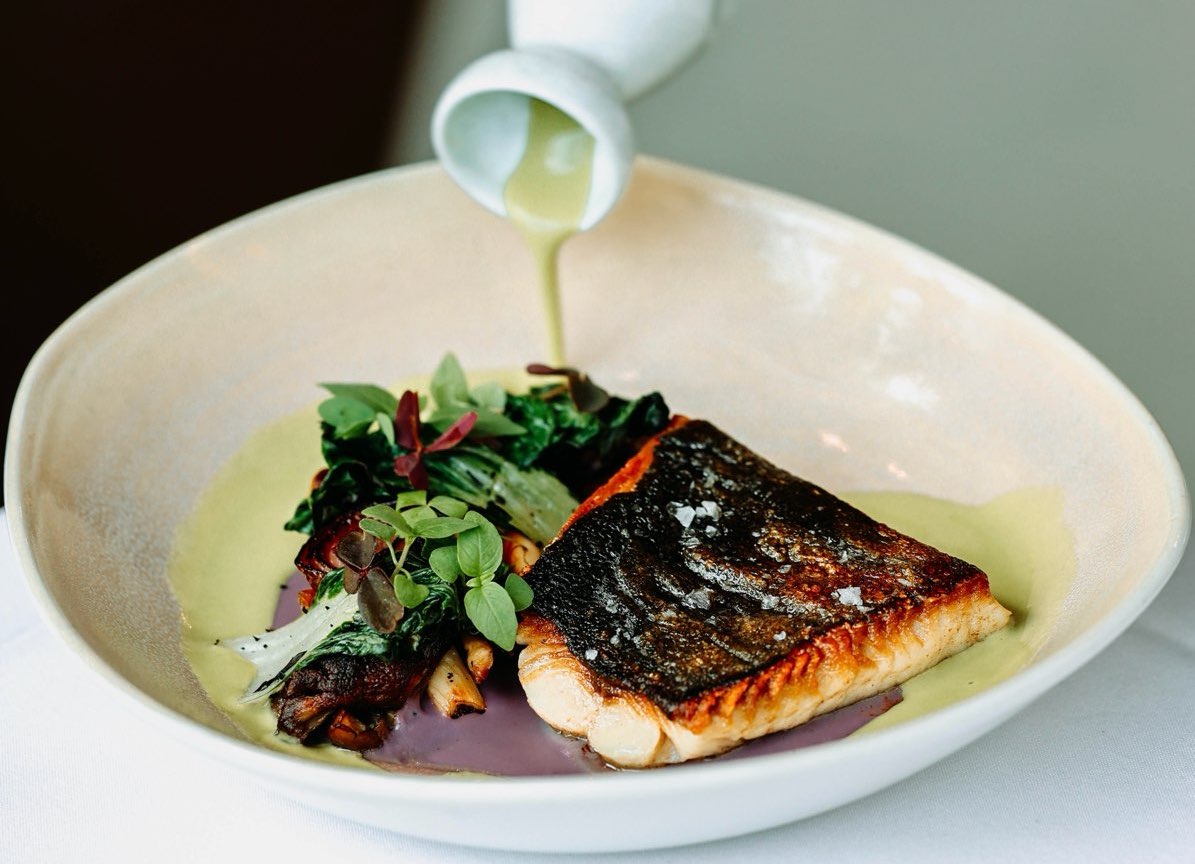
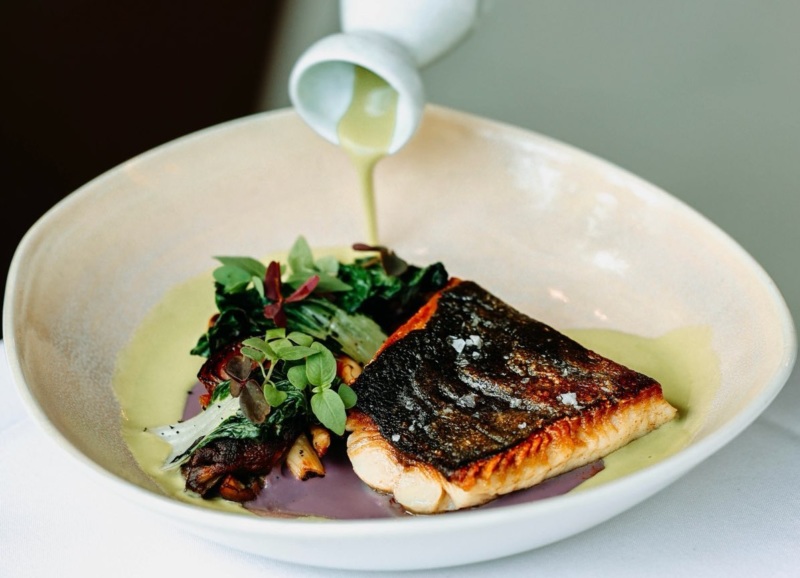
1. The name pays homage to an iconic French character.
As children of a French national (father Jean-Claude grew up in Burgundy, known for its iconic pinot noirs and chardonnays), Oliver and Nicolas grew up reading the French children’s comic series Astérix. The protagonist’s best friend, Obélix, is a deliveryman and sculptor of large stones, famed for his size and strength. The character has an appetite for hunting and eating wild boar, which Oliver remembered when brainstorming ideas for the restaurant’s name. “I always had Obélix in my head when I thought about our ideal customer,” Oliver says. “He ate a lot, had a great time, and made all the people around him have a great time, too.”
2. The menu is French … with a twist.
When Jean-Claude invited Oliver to join him at Le Bouchon as sous chef in 2013, the younger Poilevey was fresh off of stints working in Paris, Hawaii, Los Angeles, and then back in Chicago at the Publican. Oliver had talent and ideas, but his dad was hesitant to change what had worked well for the previous 20 years. When Oliver and Nicolas thought about the food at Obélix, they wanted to feature some Bouchon classics — French onion soup, escargots Bourguignonne, steak frites — with some twists of their own.
“We take more risks here knowing our concept is French food through our own lens,” Oliver says. “We have great chefs who have ideas, and I want them to have their own voice.” That translates to a menu with more global flavors: expect things like an airy, lightly tempura-battered soft-shell crab, served with a chile glaze and tapenade aioli created by chef de cuisine Nathan Kim (Jeong, Sixteen). Kim also developed the seared black cod, paired with Asian flavors like ube (purple yam), green curry, and baby bok choy.
Yes, you can get seasonal salads like gem lettuce with goat cheese and summer squash or late-summer Klug Farm peaches with stracciatella and basil. But the rotating savory tarte from pastry chef Antonio Incandela (Spiaggia) is a must-try (currently it’s a mix of Thomcord grape jam and Klug Farm grapes with almond butter and thyme sablé, basil, shiso, and balsamic to up the savory). And if you want to go big, don’t miss the $115 beef Wellington: filet mignon, mushroom duxelle, and prosciutto wrapped in puff pastry.
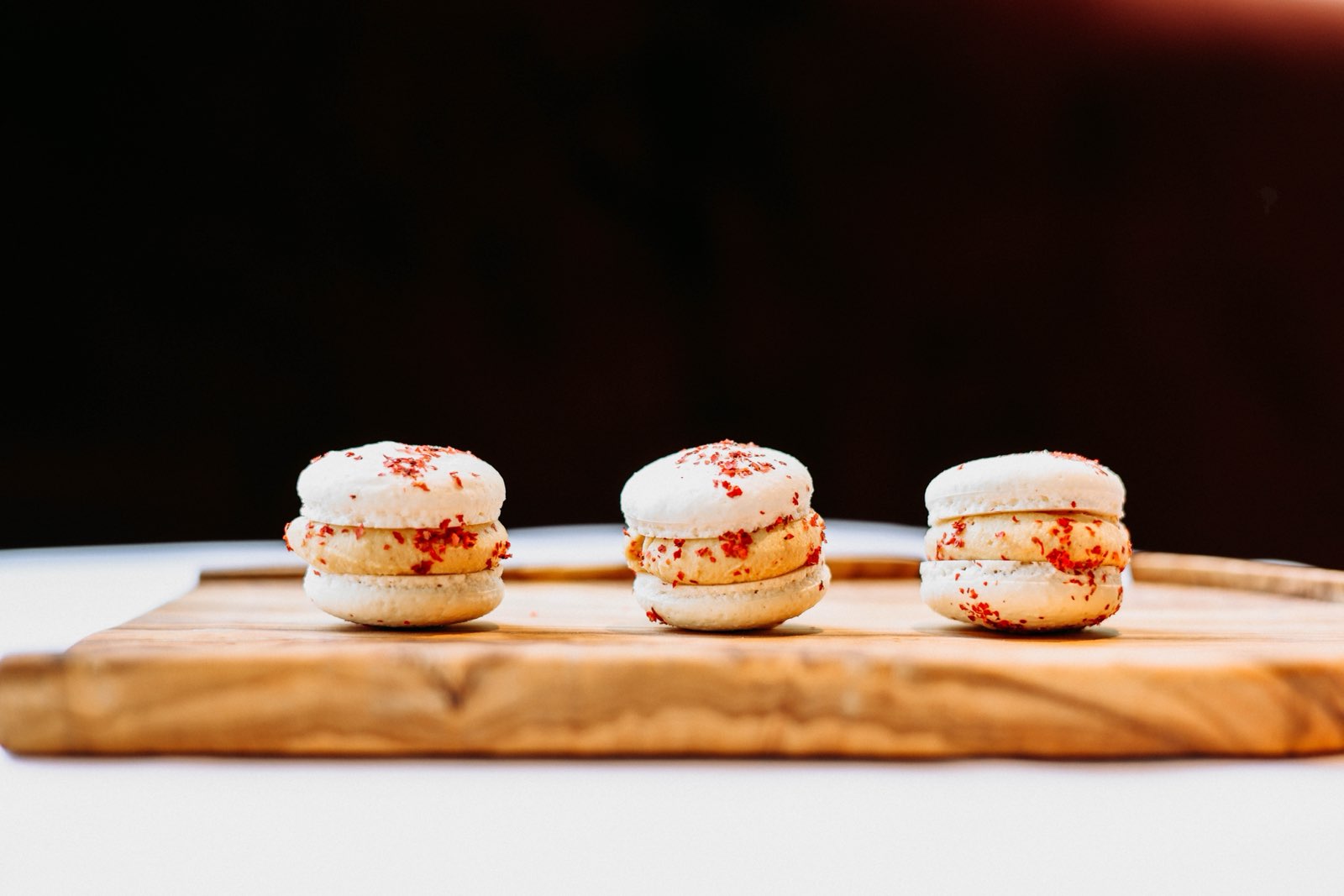
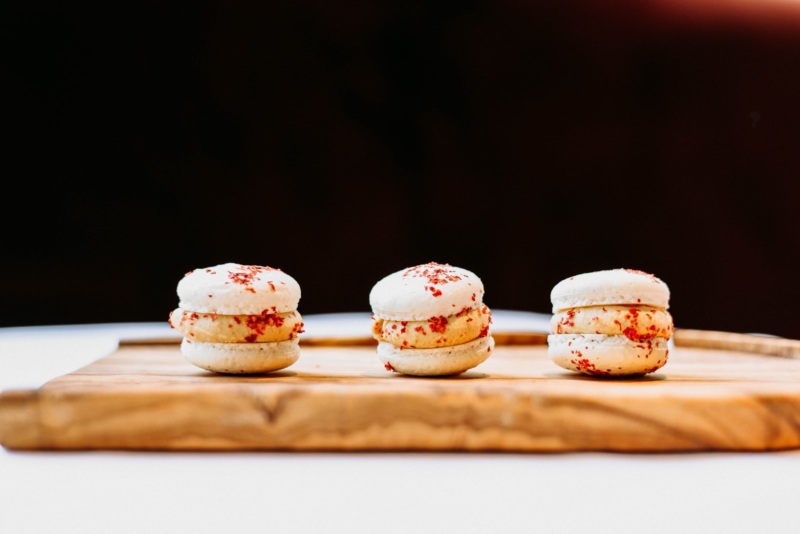
3. Duck, duck, and a lot more duck.
One thing Oliver fought for was a section of the menu dedicated entirely to duck. Why? He simply loves cooking it. “It’s so versatile, and I wanted that to be a signature for us — duck in many ways,” he says.
The result is six duck offerings, including Incandela’s pink peppercorn macarons with foie gras mousse and a date-citrus jam; a twist on a salade Lyonnaise with duck confit, a duck egg, and duck-fat croutons; a full foie gras torchon with blueberry-lemon compote; or the 10-day, dry-aged duck breast with grilled eggplant and Chinese long beans. And then there is the “foie-co,” initially conceived of at Chingón, which involves a piece of seared foie gras atop a corn tortilla with salsa macha. It’s one of the least-French, most-exciting dishes on the menu today.
4. The restaurant is bright, airy, and covered in famous chefs.
Before Obélix, the space held the dark, serious restaurant Entente, which closed during COVID. When the Poileveys took over, they wanted things to feel brighter and warmer. Enter designer Erin Boone, who advised the duo to enliven the space with a classic brasserie aesthetic. “We wanted it to be simple and to let the energy of the room speak for itself,” Oliver says.
The brothers are repurposing the old chairs from La Sardine and have framed press clippings from their family’s legacy restaurants in the back hallway. Boone updated the floors with a brown-and-white diamond-shaped painted concrete and installed custom millwork between the bar and dining room to create two distinct spaces. She sourced a number of vintage pieces, including lights from a shuttered Parisian hotel that sit on a central beam.
General manager Kevin Graver’s wife, artist Erin Erin O’Neill, created the pieces of famous (mostly French) chefs — Daniel Boulud, Jacques Pepin, Eugenie Brazier, Fernand Point, and Anthony Bourdain — that grace the bathrooms. “I grew up around French chefs and have an appreciation for the people who paved the way for us to do what we do,” Oliver says.
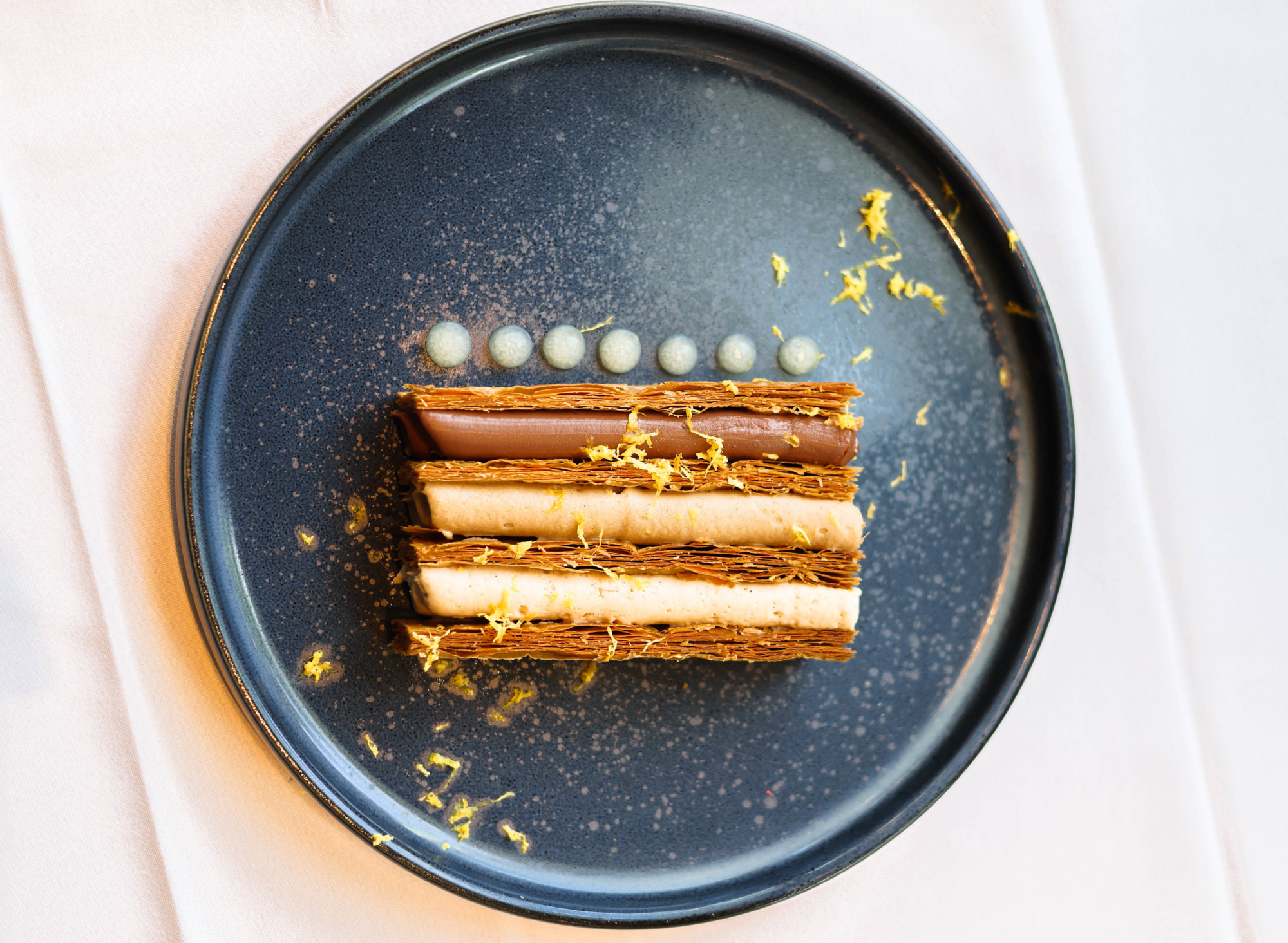
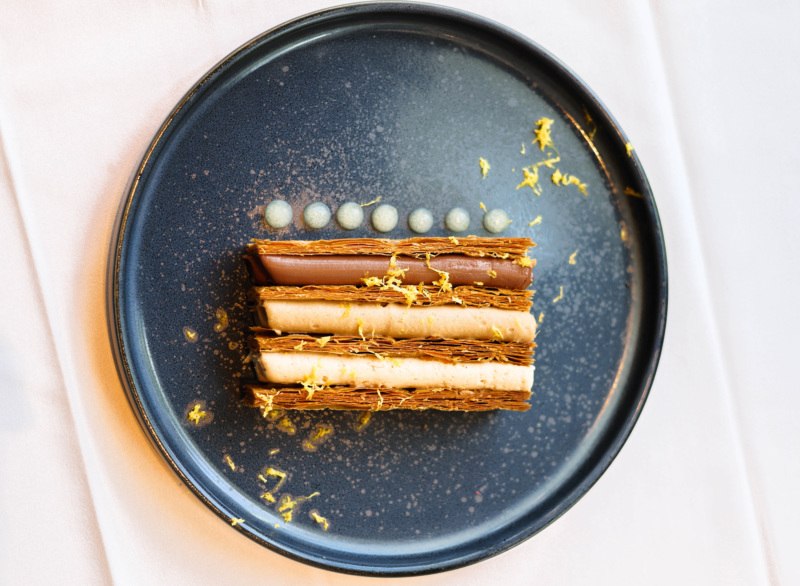
5. There’s a list of “oyster wines” to pair with the raw bar.
When you walk into the bar area, you’ll find a large chalkboard featuring handwritten daily specials. The Poileveys added raw bar items — oysters; poisson cru; caviar; shrimp cocktail; and a fairly epic $170 “Le Plateau” seafood tower complete with lobster and razor clams to further differentiate Obélix from Le Bouchon.
The board highlights a specific section of “oyster wines,” glasses and bottles that work across the raw bar menu. Think Champagne, Sancerre, Muscadet, Chablis, a sparkling Alsatian rosé, and even the Poileveys’ own chardonnay, which is bottled about 10 minutes from where their dad grew up in Burgundy. “We like to highlight oyster wines as our ideal way to start a meal,” says Nicolas. “Mineral, salty white wines with little-to-no oak influence pair perfectly with everything on our raw bar.”
Ari Bendersky, a lifestyle journalist specializing in food, wine, spirits, and travel, has written for New York Times, WSJ magazine, Eater, Men’s Journal, Wine Enthusiast, Departures, RollingStone.com, and more. Follow him on Instagram and Twitter. Follow Resy, too.
Discover More
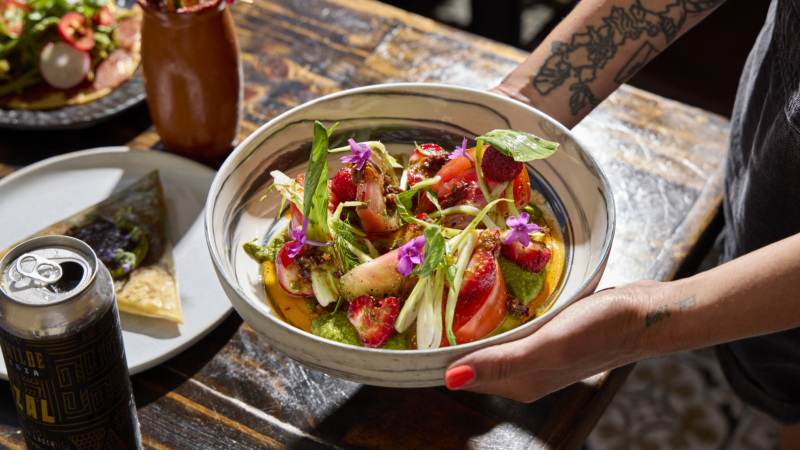
Stephen Satterfield's Corner Table










